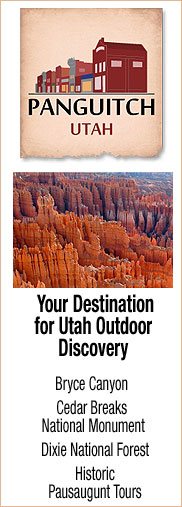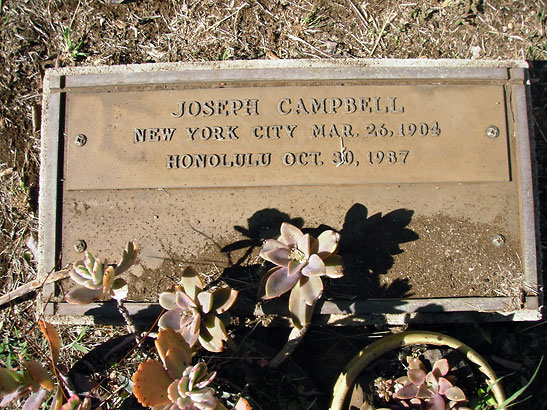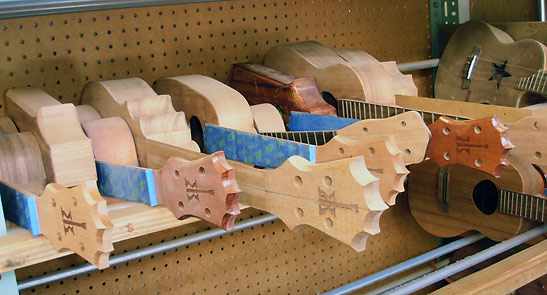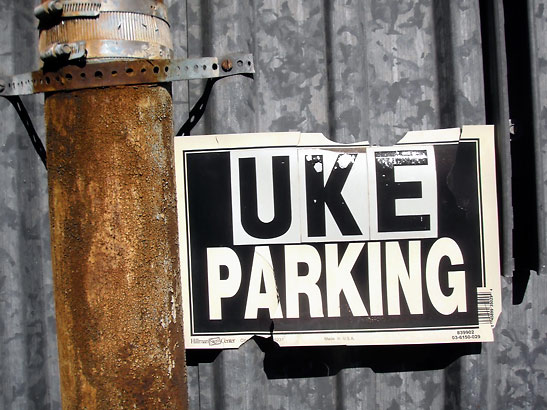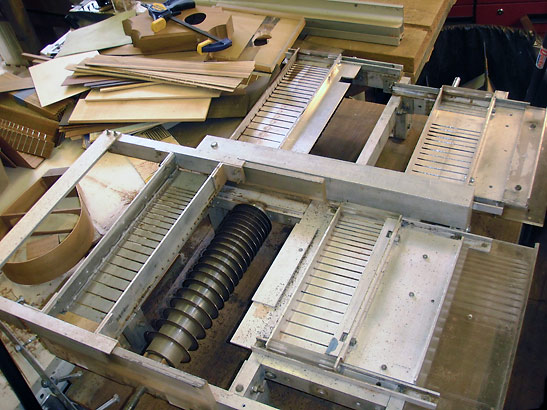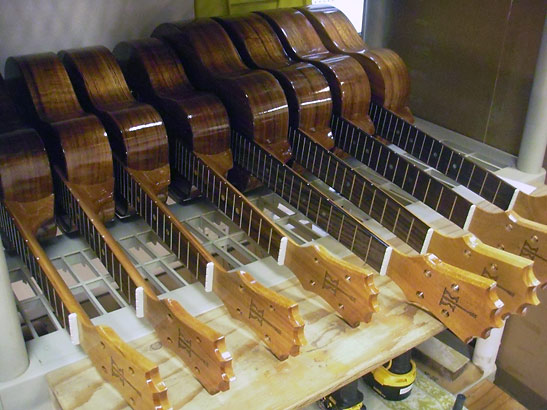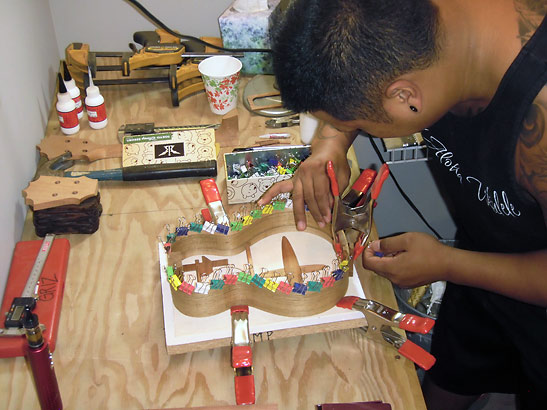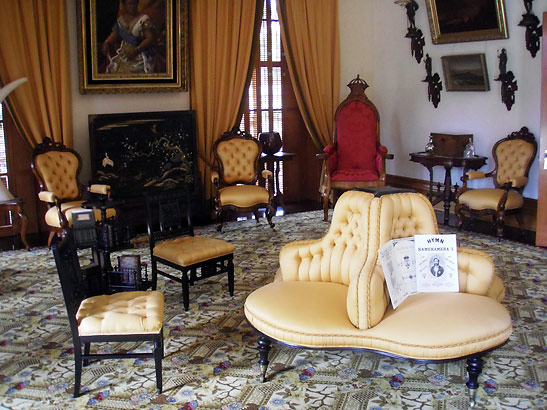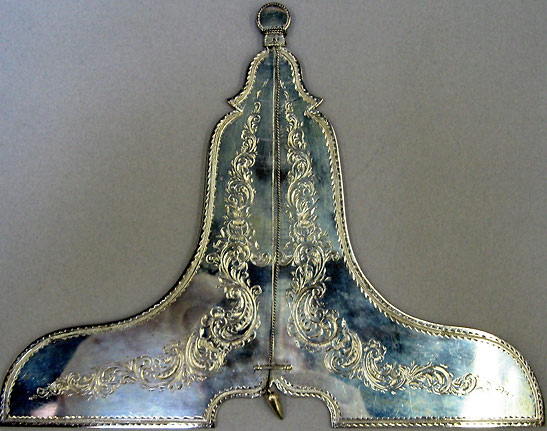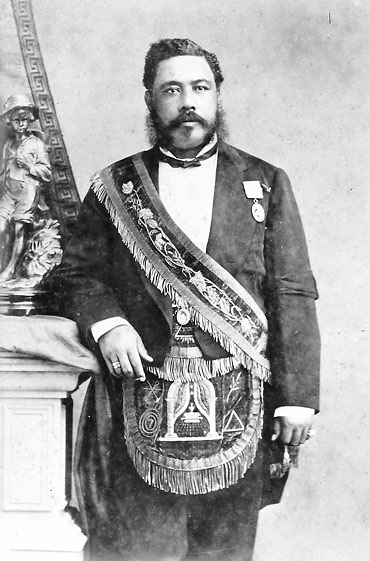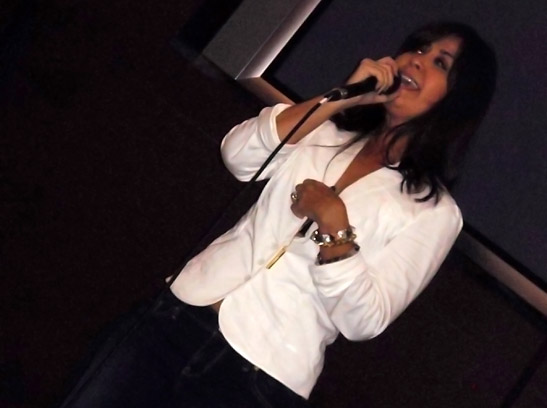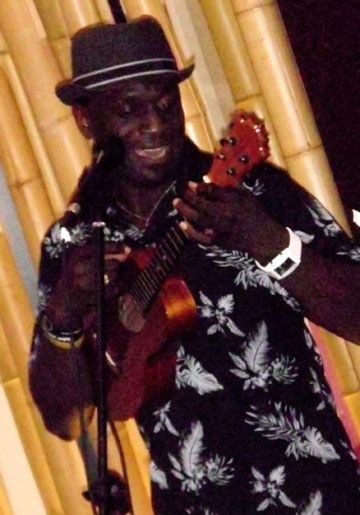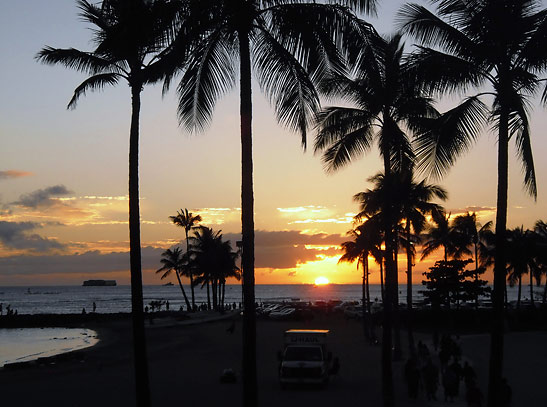 |
 |
|
 |

|
In
Preparation for Mele Mei:
The Antihero's Journey Reimagined Story and photos by Gary Singh
Departure/Separation
To explain: When the month of May unfolds in Honolulu, all separations between sound, food and spirit tend to collapse. At the end of that month, the city even stages its own equivalent of the Grammy Awards, Na Hoku Hanohano, which caps off 30 days of music, events, performances and workshops. The Hawaii Academy of Recording Arts came up with the idea for Mele Mei two years ago. This year, the antihero arrives a few months earlier, solely to test the waters. It shall be a rebirth of sorts, a shattering of all preconceived judgments as to what Hawaiian music really means. Into the belly of the whale he goes. Initiation During the initiation into this new world of Hawaiian music, the antihero experiences what Joseph Campbell refers to as the Road of Trials, a series of challenges, threats and tests of his very livelihood. In this case, Waikiki overflows with embarrassing tourists who spend thousands of dollars dragging their bored families across the ocean just to wait in line for 45 minutes to eat at The Cheesecake Factory. They appear everywhere, in all shapes and stages of sunburn. Thankfully, this type of behavior does not deter the antihero one bit. He has other more transformative ordeals to entertain. Reaching the KoAloha ukulele factory, for instance, requires quite a tumultuous path, one of potholes, rusty chain-link fences, gravel and mud. Just off the Kalihi Canal, as it flows from the Koolau Mountains to the Honolulu Harbor, past a series of upholstery warehouses, appliance wholesalers and beautifully seedy karaoke bars, KoAloha is a veritable diamond in the rough. They make 20 ukuleles a day from local Acacia Koa wood, only available in Hawaii.
Inside, the antihero discovers industrial belt sanders, a kiln, a milling machine, a thousand scraps of wood and more ukulele parts than he has ever seen in one place. There's even a homemade contraption that automatically carves out grooves for the frets.
Alvin "Pops" Okami originated the business 18 years ago, converting his former plastics factory into a ukulele manufacturing plant. An authentic family business, it still thrives today and makes high-end custom instruments for musicians all over the world.
In a lead-in to what Joseph Campbell might call the Ultimate Boon stage of the antihero's initiation, where he realizes the purpose of his quest, the wonderful folks at KoAloha decide to present the antihero with a custom ukulele, engraved with his own name on it. The goal materializes, with the antihero discovering his path in this journey: learning how to play the ukulele. He has found the earthly paradise, as described by Campbell:
Later in the journey, the antihero discovers another paradise, Iolani Palace, the former home of King Kalakaua and Queen Liliuokalani, Hawaii's final monarchs, nearly a century ago. There he learns that Henry Berger, a Prussian bandmaster, originally came to Hawaii and taught the royal family how to play music. The Royal Hawaiian Band, to this day, still carries on the traditions of Henry Berger. Some of his sheet music is even on display in one of the rooms.
An interesting side note: since King Kalakaua was a 33rd-degree Freemason, he made sure the cornerstone of the palace was laid according to full Masonic rites when he built the place. As the antihero shows up during the Mele Mei advance visit, some of the original Masonic tools used to lay that cornerstone on December 31, 1879, are on display. More will be revealed on another visit, he assumes. From here, the unheard music of eternal concord continues. At Loading Zone Arts, a gallery and performance space upstairs above a beautifully seedy stretch of Hotel Street, the antihero watches Emke, Honolulu's rock band of mostly teenage Japanese girls, do a rocking version of Def Leppard's "Pour Some Sugar on Me." Somewhere buried in this experience, a few different stages of Campbell's Initiation phase manifest themselves, although the antihero is not quite sure if it's the Meeting With the Goddess or the Woman as Temptress.
As the journey winds down, the antihero witnesses curvaceous hula dancers at Halekulani, where Charlie Chan once hung out, plus a few sultry divas atop the Hilton Waikiki Prince Kuhio. Impromptu ukulele jams transpire nearly every night. The music never seems to end. All in all, the Ultimate Boon, as Joseph Campbell writes, emerges forth in the form of experience. The antihero no longer feels "anti." He feels like a regular hero instead, transformed, and one with a more-than-adequate sampling of Hawaiian music. Again, it's not all slack key guitar and whiskers. Return To the mainland, the hero comes back, Campbell's mythological Crossing of the Return Threshold. Prize ukulele in hand, he returns with privileged knowledge of Hawaiian music. He will not take flight. He will not forget the folks at home. He will integrate the experience into his very existence, he will learn how to play the ukulele and he shall distribute harmonious Hawaiian wisdom throughout his microcosm.
As a result, a huge ocean no longer separates the hero from Honolulu. He feels forever connected to the sounds of Hawaii. The industrial belt sanders at KoAloha, the curvaceous hula dancers, the Masonic history, Japanese girls playing Def Leppard and the gravesite of Joseph Campbell are now permanent components of the hero's psychological makeup, bridging any possible divide between the mainland and Oahu. The two worlds are one and the same.
Related Articles: |
|
Your tea adventures are especially interesting because I've always associated tea with British etiquette or a bevy of women wearing dainty victorian costumes and sipping tea with their little pinky sticking out. To see Tea from a man's perspective brings new light in a man's psyche. I've been among the many silent admirers of your writings for a long time here at Traveling Boy. Thanks for your very interesting perspectives about your travels. Keep it up! --- Rodger, B. of Whittier, CA, USA
|
This site is designed and maintained by WYNK Marketing. Send all technical issues to: support@wynkmarketing.com

|


